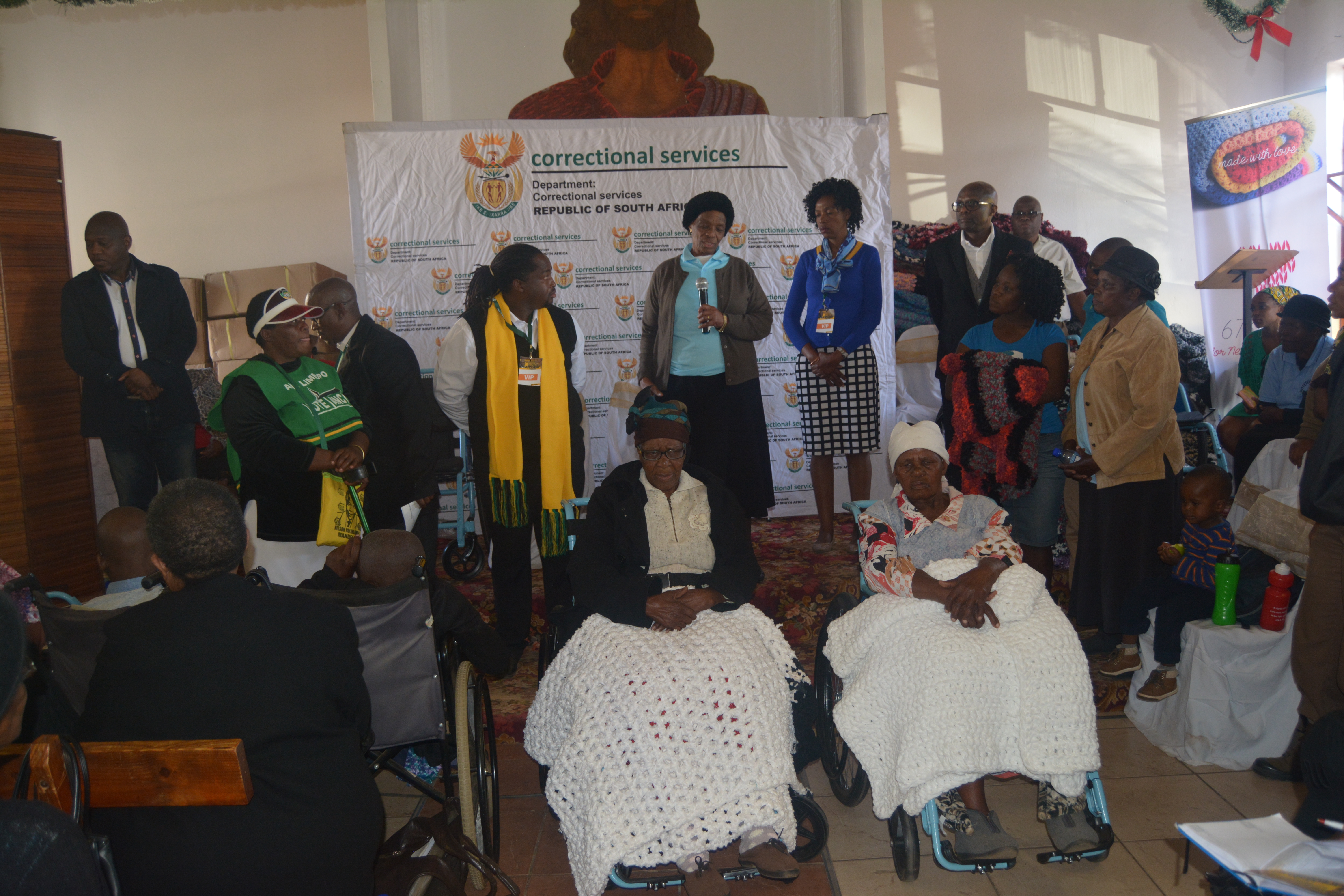 He was speaking at the DCS Health Partners Conference held at Vanderbijlpark from Tuesday, 19 April to Thursday, 21 April. The conference was convened by the Right to Care and attended by officials from KwaZulu-Natal and Free State and Northern Cape regions. Other partners that participated in the conference were the Department of Health and TB/HIV Care (Non-Governmental Organisation).
He was speaking at the DCS Health Partners Conference held at Vanderbijlpark from Tuesday, 19 April to Thursday, 21 April. The conference was convened by the Right to Care and attended by officials from KwaZulu-Natal and Free State and Northern Cape regions. Other partners that participated in the conference were the Department of Health and TB/HIV Care (Non-Governmental Organisation).
The partnership between the department and other role players to roll out TB and HIV/AIDS treatment, nutritional and hygiene services at correctional centres is currently being implemented in KwaZulu-Natal and Free State and Northern Cape regions. Addressing the Conference, Mr Modise said a lot has been achieved since the partnership was established in 2014. The achievements are, among others, a high number of inmates screened on admission, increased number of peer educators for TB/HIV awareness, increased number of TB tracer teams for locating released patients who have stopped treatment and staff development.
He said officials should not hinder the partners from helping the department by denying them access to the correctional centres. He referred to an incident where the Right to Care officials were denied access to a correctional centre during Operation Vala. He also said the Health Care officials such as pharmacists and nurses should get resources such as laptops to enable them to function effectively. Despite the achievements already recorded, the conference discussed issues that remain a challenge, such as inmates who are untraceable after release. This is mainly caused by offenders who give wrong personal details when they enrol for treatment.
Mr Modise said this problem shows the need for a biometrics system of recording personal details. The Department of Health promised to provide health care to released inmates in the communities from which they come so that they do not stop treatment once they are released.



 The officials walked from Head office to the shelter under the leadership of DC Human Resource Management, Emmanuel Khoza, and DC Integrated Employee Health and Wellness, Mollet Ngubo. The shelter accommodates about 1000 people, including refugees, disabled persons, women and children. During his address Khoza said the dwellers must remain disciplined and maintain hygiene, though they are facing challenges. He promised that the department will provide ongoing help in the form of maintenance of the building.
The officials walked from Head office to the shelter under the leadership of DC Human Resource Management, Emmanuel Khoza, and DC Integrated Employee Health and Wellness, Mollet Ngubo. The shelter accommodates about 1000 people, including refugees, disabled persons, women and children. During his address Khoza said the dwellers must remain disciplined and maintain hygiene, though they are facing challenges. He promised that the department will provide ongoing help in the form of maintenance of the building.


 About 2000 offenders from across the country helped setting a new world record for the largest crochet blanket in the world. A massive blanket larger than the initial goal of 15 000 m2 shimmered with exquisite colours and patterns on a piece of land directly across the entrance to Drakenstein Correctional Centre on Friday, 22 April, to symbolically amplify the occasion of being declared the new world record holders.
About 2000 offenders from across the country helped setting a new world record for the largest crochet blanket in the world. A massive blanket larger than the initial goal of 15 000 m2 shimmered with exquisite colours and patterns on a piece of land directly across the entrance to Drakenstein Correctional Centre on Friday, 22 April, to symbolically amplify the occasion of being declared the new world record holders.
 The community of Motetema in the Elias Motsoaledi Municipality waited in anticipation to receive one of their own, Deputy Minister Thabang Makwetla on Friday, 22 July 2016. The air of expectation and warm reception that Mr Makwetla received explicitly showed that he is held in high regard by the community from which he hails.
The community of Motetema in the Elias Motsoaledi Municipality waited in anticipation to receive one of their own, Deputy Minister Thabang Makwetla on Friday, 22 July 2016. The air of expectation and warm reception that Mr Makwetla received explicitly showed that he is held in high regard by the community from which he hails.